Waas to Amiri – International players under the Bayer Cross
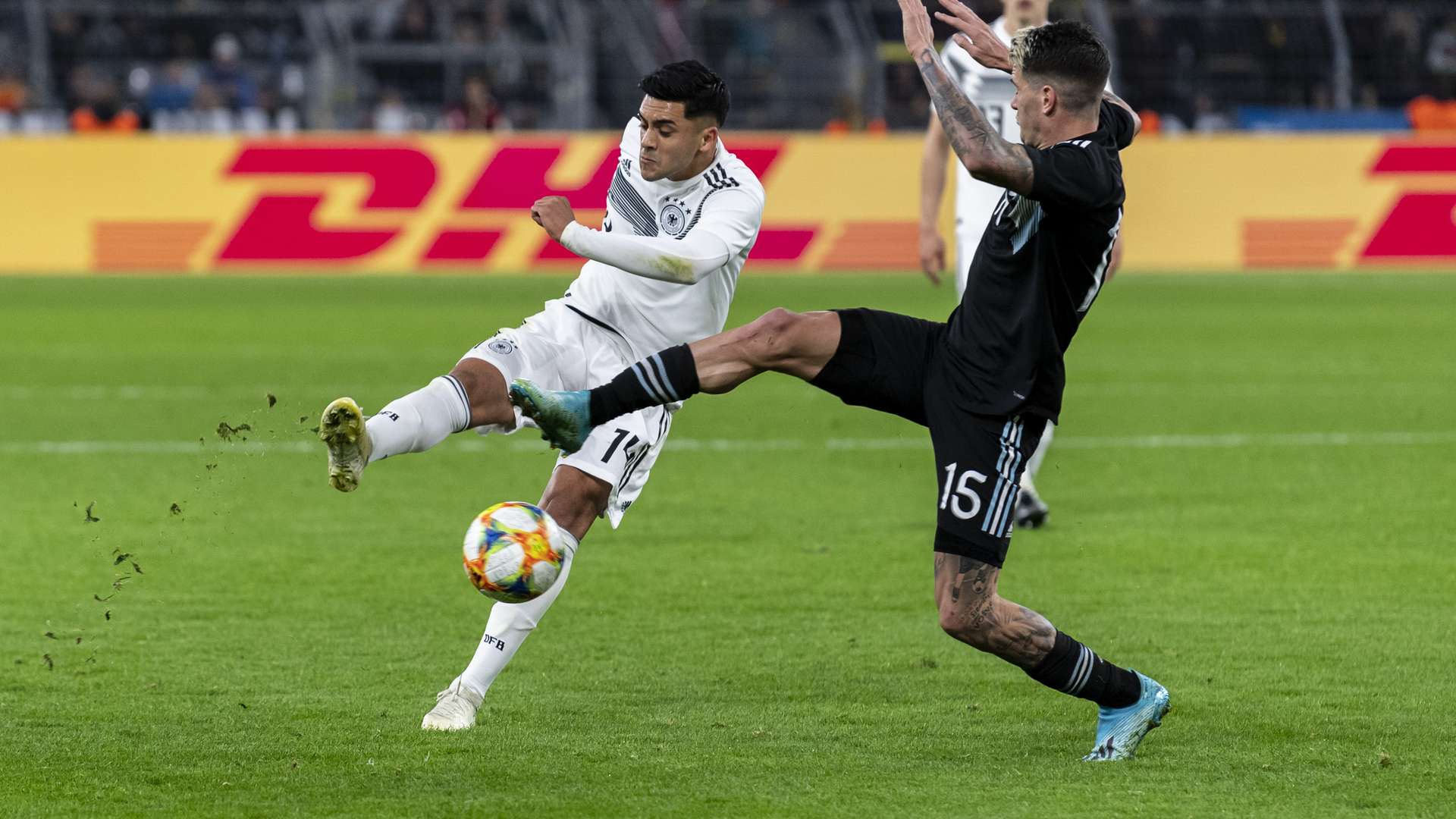
Germany against Italy – the 36th classic encounter was due to played in Nuremberg on Tuesday night but was called off due to the Covid-19 crisis – is so much more than 'just' an international fixture. Nadiem Amiri would probably have been in Germany's line-up in the showdown with the Azzurri after having recently made the step up to the national team. A number of other Bayer 04 players have preceded him. Here's an overview.
Herbert Waas was the first: When the Werkself striker made his debut for Germany on 7 June 1983, he was exactly 19 years, eight months and 30 days old – and that is almost exactly 6 months older than Kai Havertz when he made his international debut on 9 September 2018. Between Havertz, the youngest ever international in the club's history, and Waas is a gap of 35 years. To date, 141 Werkself players from 35 countries have appeared on the international stage.
Back to Herbert Waas: Born in Passau in Bavaria, he was signed from 1860 Munich in the 1982/83 season and his impressive performances for Bayer 04 led to his call up to the Germany squad. In his first season in Leverkusen, Waas played all 34 Bundesliga games under coach Dettmar Cramer – and he went the full distance every time with the exception of one match. His goals tally was eleven.
Germany coach Jupp Derwall brought Waas on in a friendly against Yugoslavia in place of Hansi Müller on 67 minutes. The first Germany international in the history of Bayer 04 had a successful debut that included an assist for Karl-Heinz Rummenigge to make it 4-2 for Germany. Also on the pitch were Rudi Völler, Wolfgang Rolff and Bernd Schuster, back then at Werder Bremen, Hamburg SV and Barcelona before later going on to play for Bayer 04.
Herbert Waas's international career failed to really take off after a promising start. He won eleven international caps between 1983 and 1988. Waas scored his only goal in October 1986 in a 2-2 draw in a friendly against Spain, he made his eleventh and final international appearance as a UEFA Cup winner in 1988 in a 1-0 victory over the USSR.
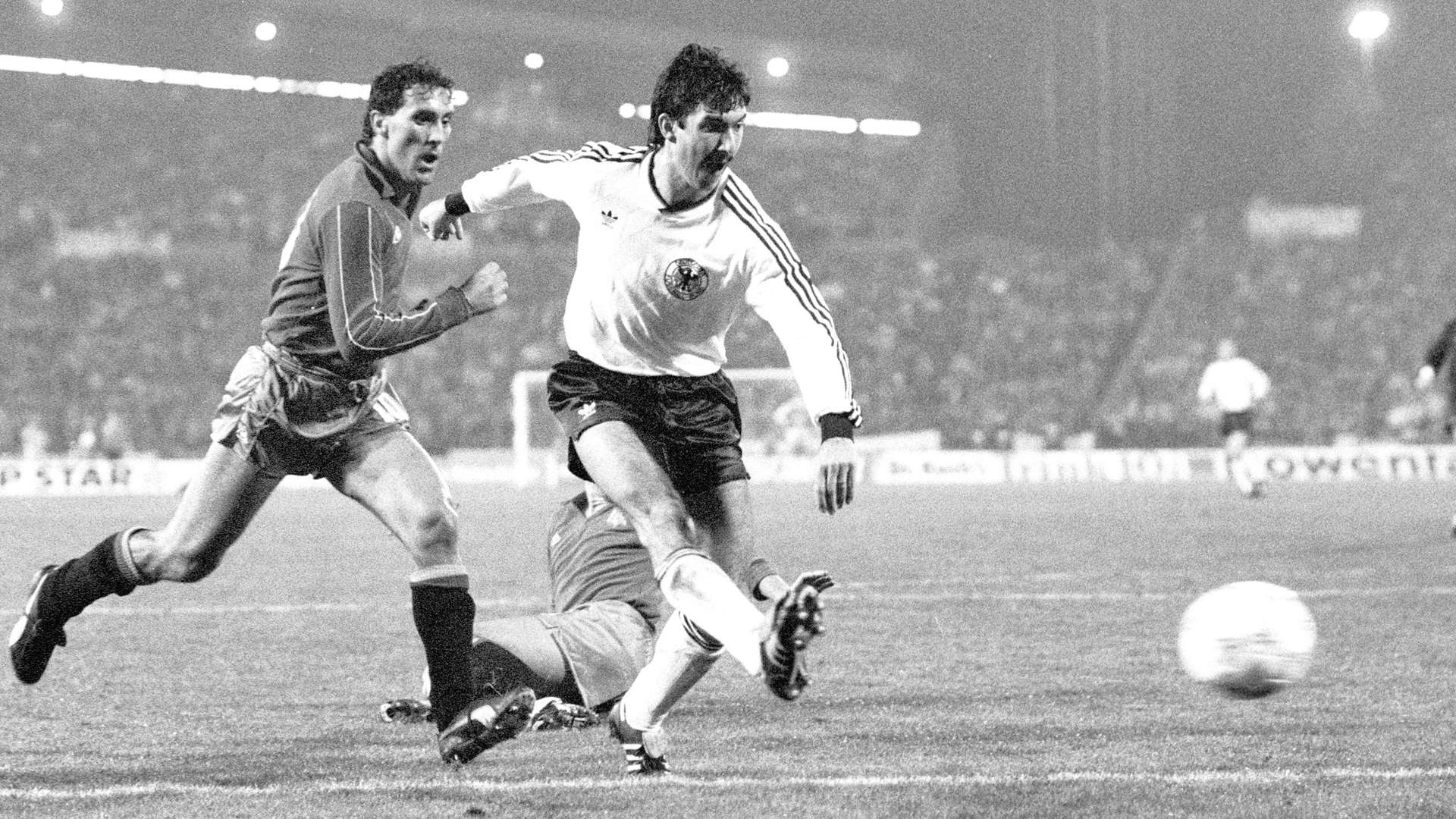
A popular figure from Norway
Before Herbert Waas, another Bayer 04 striker playing in the Bundesliga made ten international appearance during his time at Leverkusen. Albeit for Norway rather than Germany. In 1980, at the start of the second season in the Bundesliga, Arne-Larsen Ökland joined Leverkusen from Bryne IL and the curly haired Scandinavian became the first international to play for his country while at the Werkself. Ökland made 54 appearances and scored 13 goals for Norway during his career.
The striker’s move from Scandinavia to the Rhine led to a degree of euphoria and excitement amongst Bayer 04 supporters with over 1,000 fans at an open training session for the group led by coach Willibert Kremer and they greeted the 26-year-old Ökland with rousing applause. He repaid that appreciation with plenty of goals in the following three years.
His finest hour was definitely a hat-trick in 20 minutes in a 3-0 victory over Bayern Munich in March 1981 with his opponent Klaus Augenthaler substituted after 36 minutes in a state of exhaustion. Referee Udo Horeis even awarded a fourth goal to Ökland but the alleged goalscorer went to the referee and said: "That wasn't a goal, the ball went in through the side netting." After the game, Ökland was a guest on the sports show on ZDF television and he received a great reception from the audience for his exemplary fair play. "I had to tell the referee," said the Norwegian amateur angler and rabbit breeder – and he smiled pensively when he was asked if he would have behaved in exactly the same way if the scores were level or they were losing.
Arne Ökland scored 43 goals in 101 Bundesliga games before signing for Racing Paris for a then record fee for Bayer 04 of one million Deutschmarks.
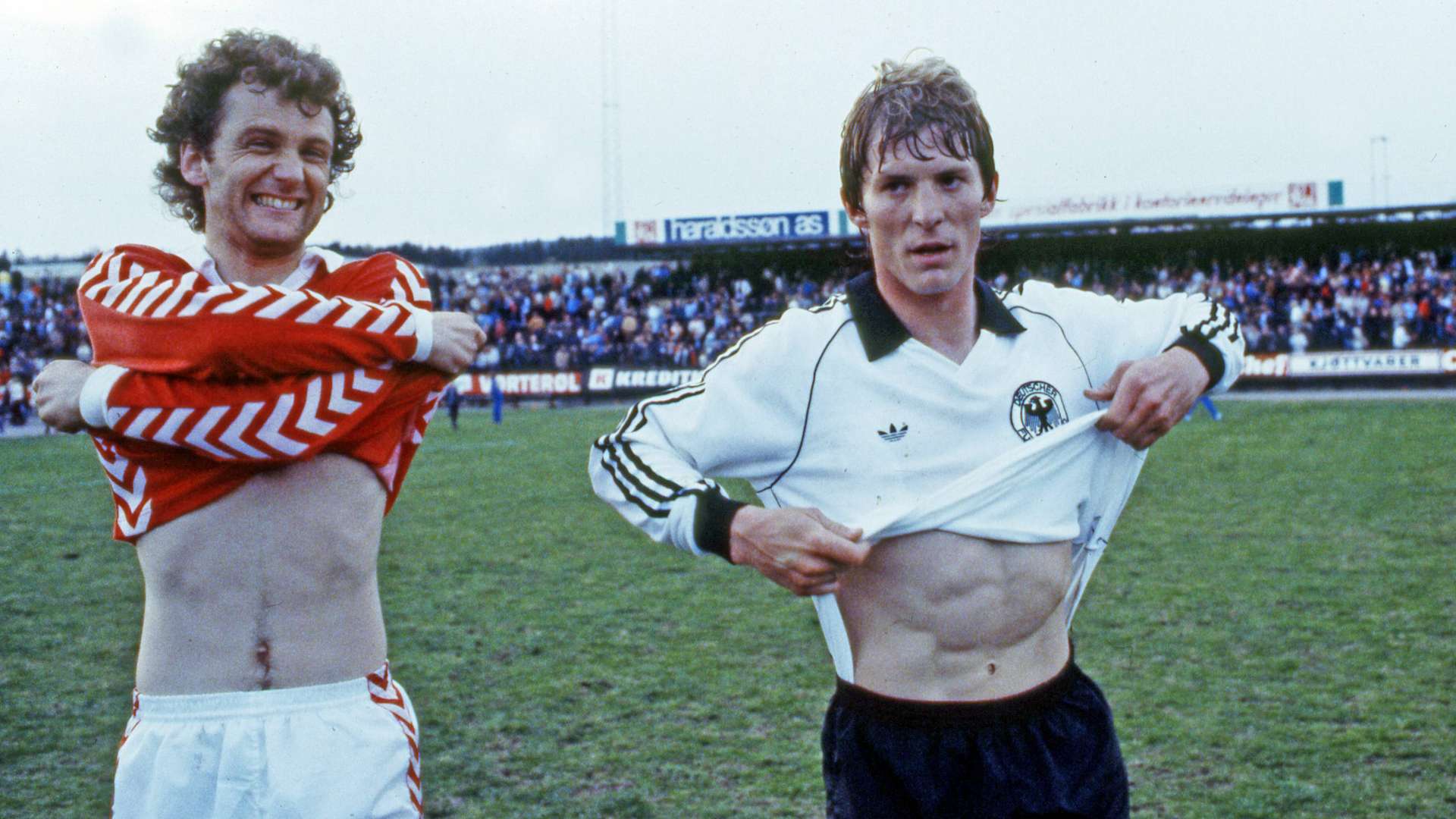
Hero status back home
When Ökland left in the summer of 1983, Bum-kun Cha joined Leverkusen and he had long-standing hero status back home in South Korea. He was the first non-European player to make 100 international appearances – Cha's international career lasted 14 years with the striker winning 119 caps for South Korea.
It did not take long for the next Germany international to come through from the ranks of Bayer 04. Christian Schreier, signed from VfL Bochum, made his first international while playing for the Werkself in a 2-0 win against Denmark on 24 September 1986. Thomas Hörster made his international debut under Franz Beckenbauer on 24 September 1986 – at the tender age of 29. Wolfgang Rolff, already a well established German international, was a World Cup runner-up with Germany when he joined Leverkusen in 1986.
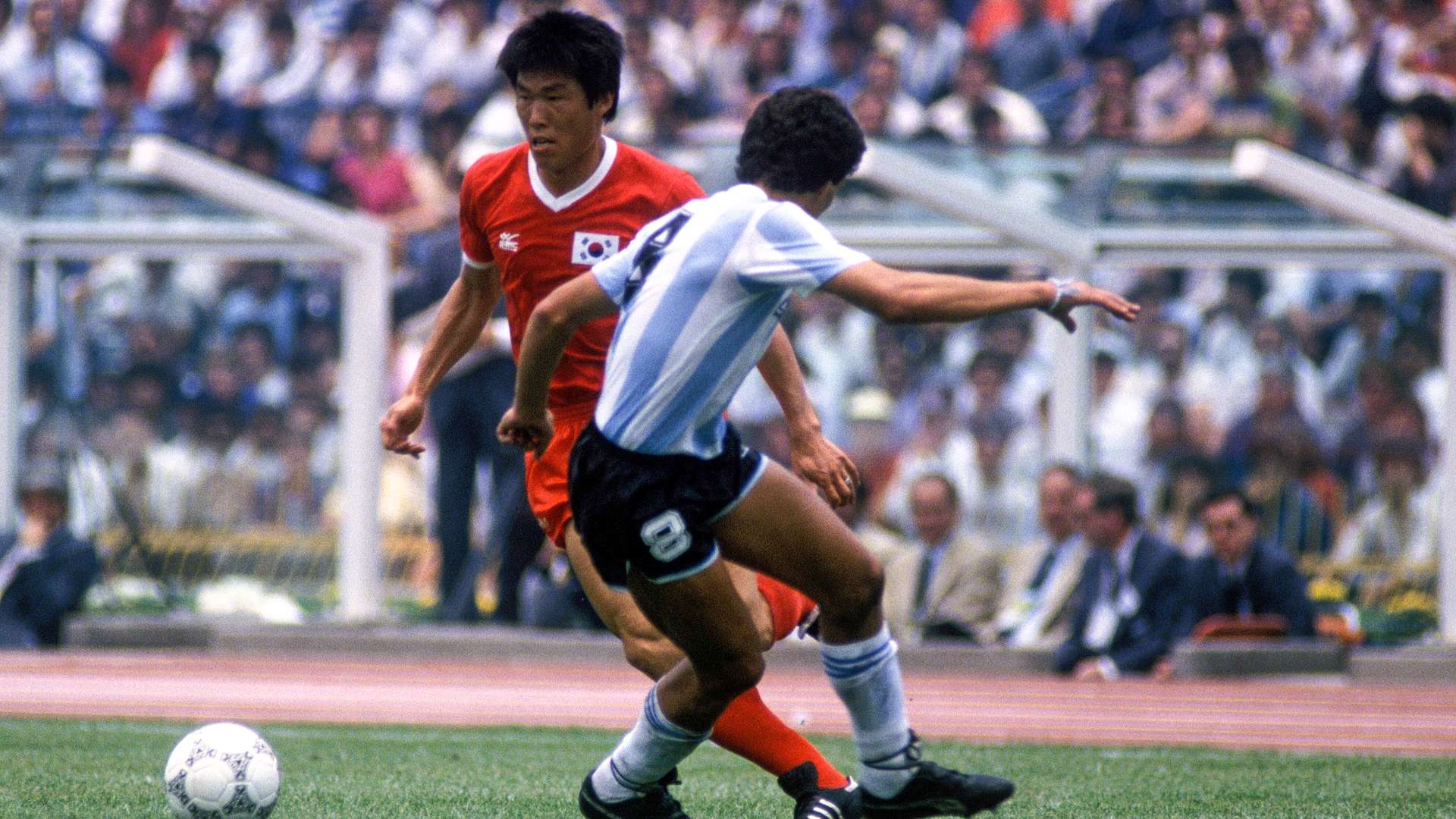
Double Reinhardt
All three were UEFA Cup winners at Bayer 04 two years later. Exactly like Knut Reinhardt and Alois Reinhardt who were both called up by team boss Beckenbauer for their debuts almost at the same time. Note in the autumn of 1988, Alois in early 1989. Both were in the Germany squad for an incredibly crucial game. On 15 November 1989, Germany had to beat Wales in a World Cup qualifier to go through to the finals in Italy. At the Müngersdorf Stadium in Cologne, Wales, with nothing to play for, took a surprising early lead. Rudy Völler levelled the scores before half-time. Beckenbauer brought on Alois Reinhardt in place of Klaus Augenthaler in central defence for the start of the second half. Just three minutes into the second 45, Pierre Littbarski set up Thomas 'Icke' Häßler to make it 2-1 for Germany.
Alois Reinhardt, who hardly touched the ball, celebrated the goal with his teammates that was to take Germany through to the World Cup finals in Italy. Knut Reinhardt, who did not play, jumped up from the bench. 235 days later, Germany beat Argentina 2-1 to win the World Cup. Neither of the Reinhardt's were in the World Cup squad – but they did make a small contribution to Germany's triumph.
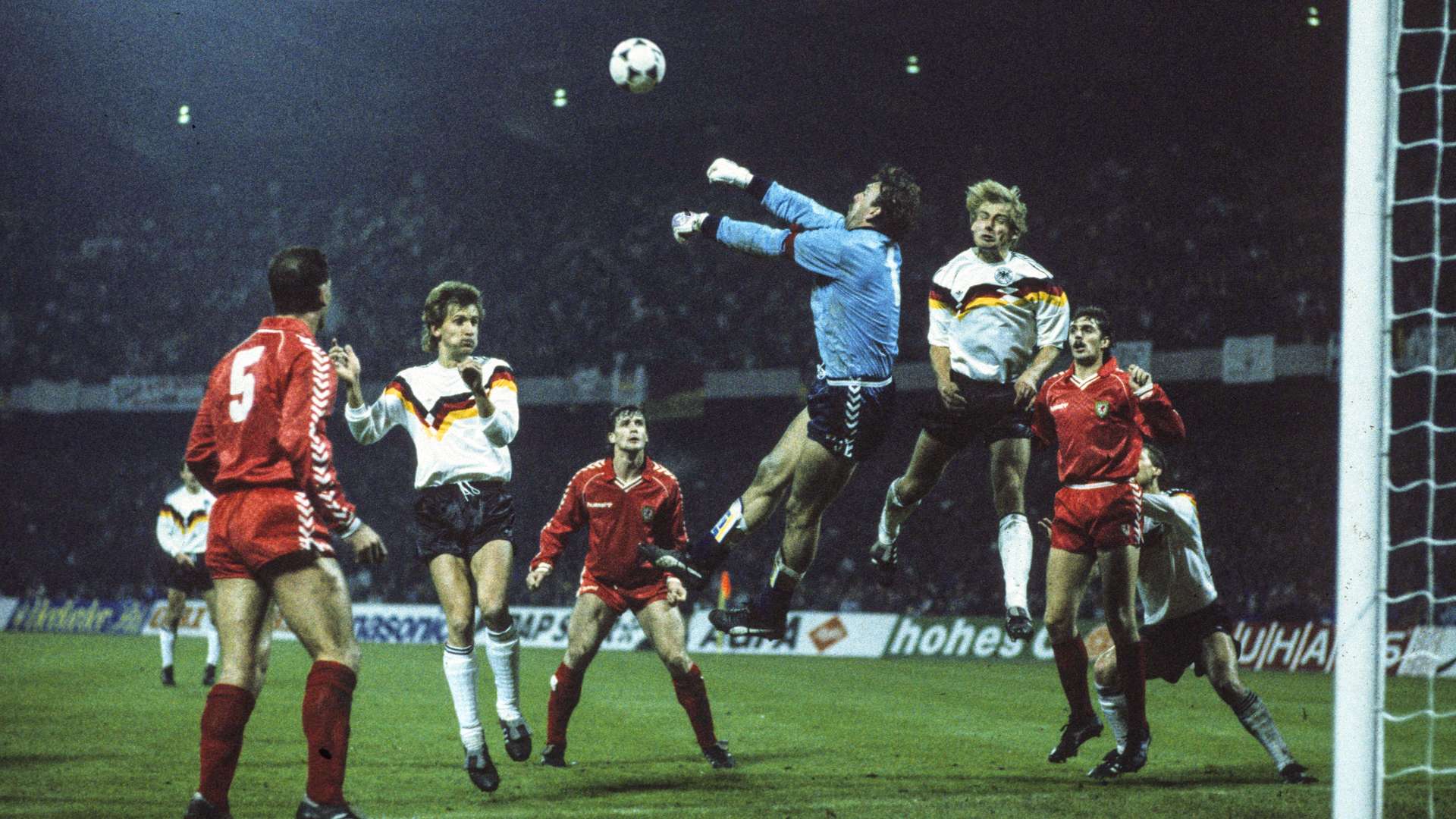
Successful on both sides of the wall
After the World Cup win in Italy, a player moved to Leverkusen after having played 49 internationals for the former German Democratic Republic (GDR): Ulf Kirsten played his first game for the 1976 Olympic Games winners at the age of 19 years, five months and four days in 1985.
After the fall of the Berlin Wall, it did not take long for 'der Schwatte' to be in the running for an international call-up following his performances for Bayer 04. Kirsten made his debut for Germany under coach Berti Vogts in a friendly against Mexico on 14 October 1992 – of all places, at his former home ground in Dresden. The central striker came on after 68 minutes at the Rudolf Harbig Stadium in place of Rudi Völler who opened the scoring for Germany. The match ended all square at 1-1. Kirsten's international career lasted another eight years. His final and 100th international appearance (49 for the GDR, 51 for Germany) came in the 3-0 defeat against Portugal on 20 June 2000 that led to the ignominious exit from the Euros in Belgium and Holland. There are definitely better final appearances. The most successful goalscorer in the history of Bayer 04 scored a total of 34 goals for the two Germany teams.
Kirsten's Leverkusen teammates Andreas Thom and Heiko Scholz also played for the GDR and Germany. Thom made a total of 65 international appearances (54 for the GDR, ten for Germany), and Scholz earned nine caps (eight for the GDR, one for Germany).
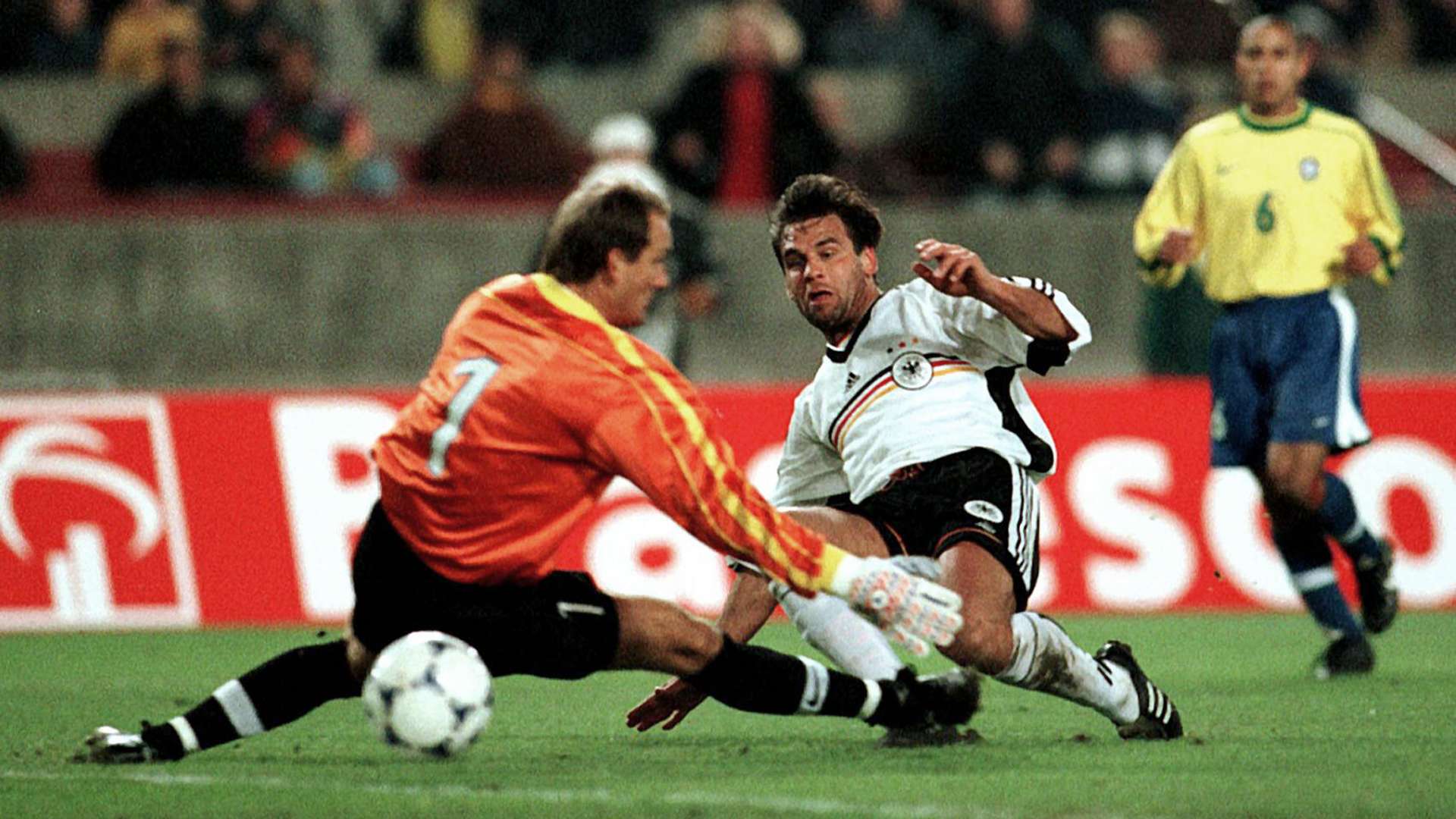
2002 World Cup: All Bayer or what?
Bayer 04 international players undoubtedly achieved the most attention worldwide at the 2002 World Cup in Japan and South Korea. One World Cup winner, six World Cup runners-up and one in third place – that was the phenomenal roll call from a Leverkusen perspective.
Lucio was a key player for the Selecao and he came out on top with Brazil in the dream final between a battling Germany side in a 2-0 win. The team under head coach Rudi Völler included Leverkusen players Carsten Ramelow, Bernd Schneider, Michael Ballack and Oliver Neuville amongst the top performers. The third keeper Jörg Butt did not play. If Jens Nowotny had not suffered a torn cruciate in the Champions League semi-final against Manchester United, then the Leverkusen contingent in the Germany squad would have been even bigger.
Yildiray Bastürk shone as a playmaker for Turkey who achieved an historic success by finishing third. Other Bayer 04 players at the World Cup were Frank Heyduk (USA), Diego Placente (Argentina), Boris Zivkovic and Jurica Vranjes (Croatia).
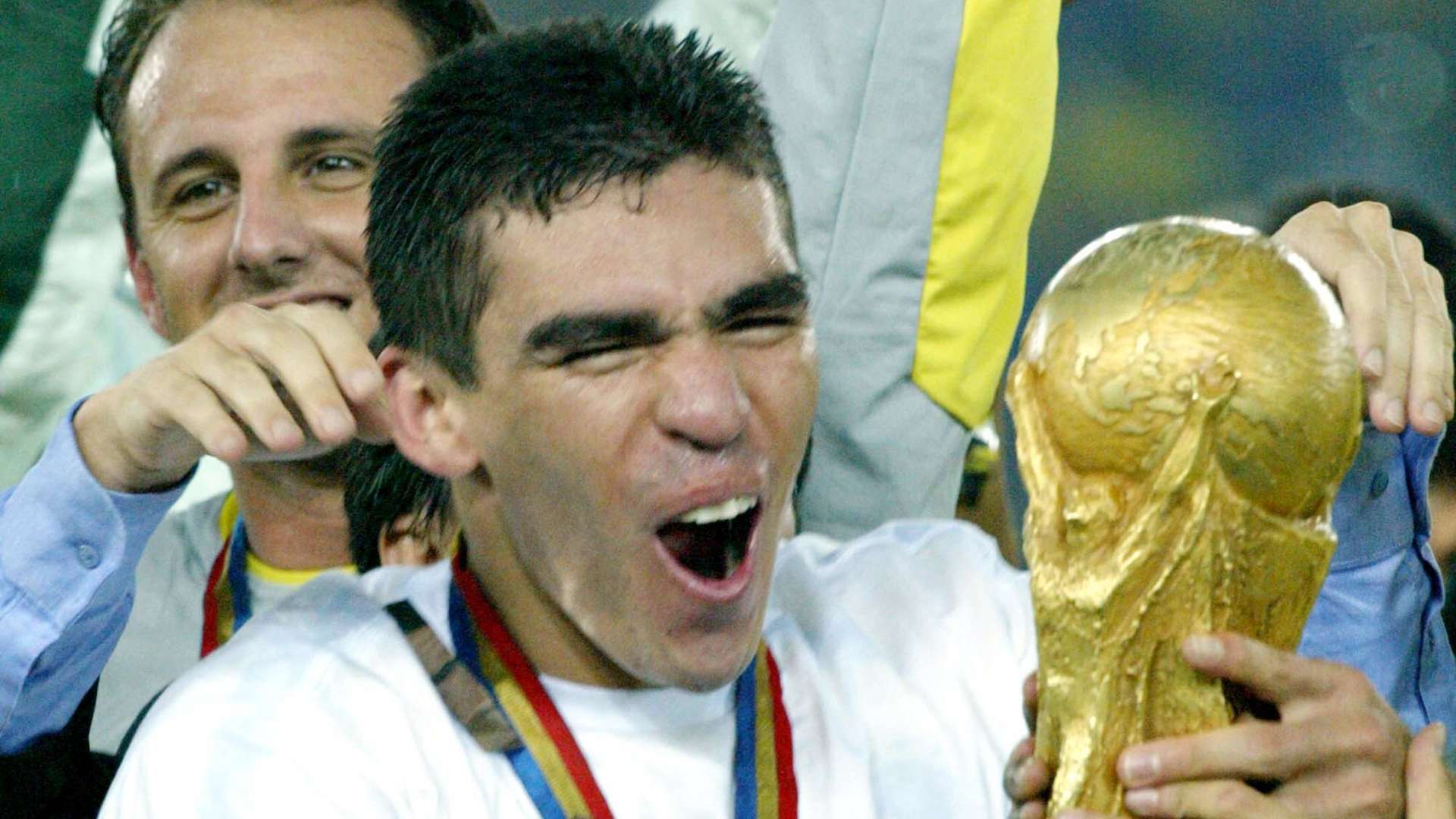

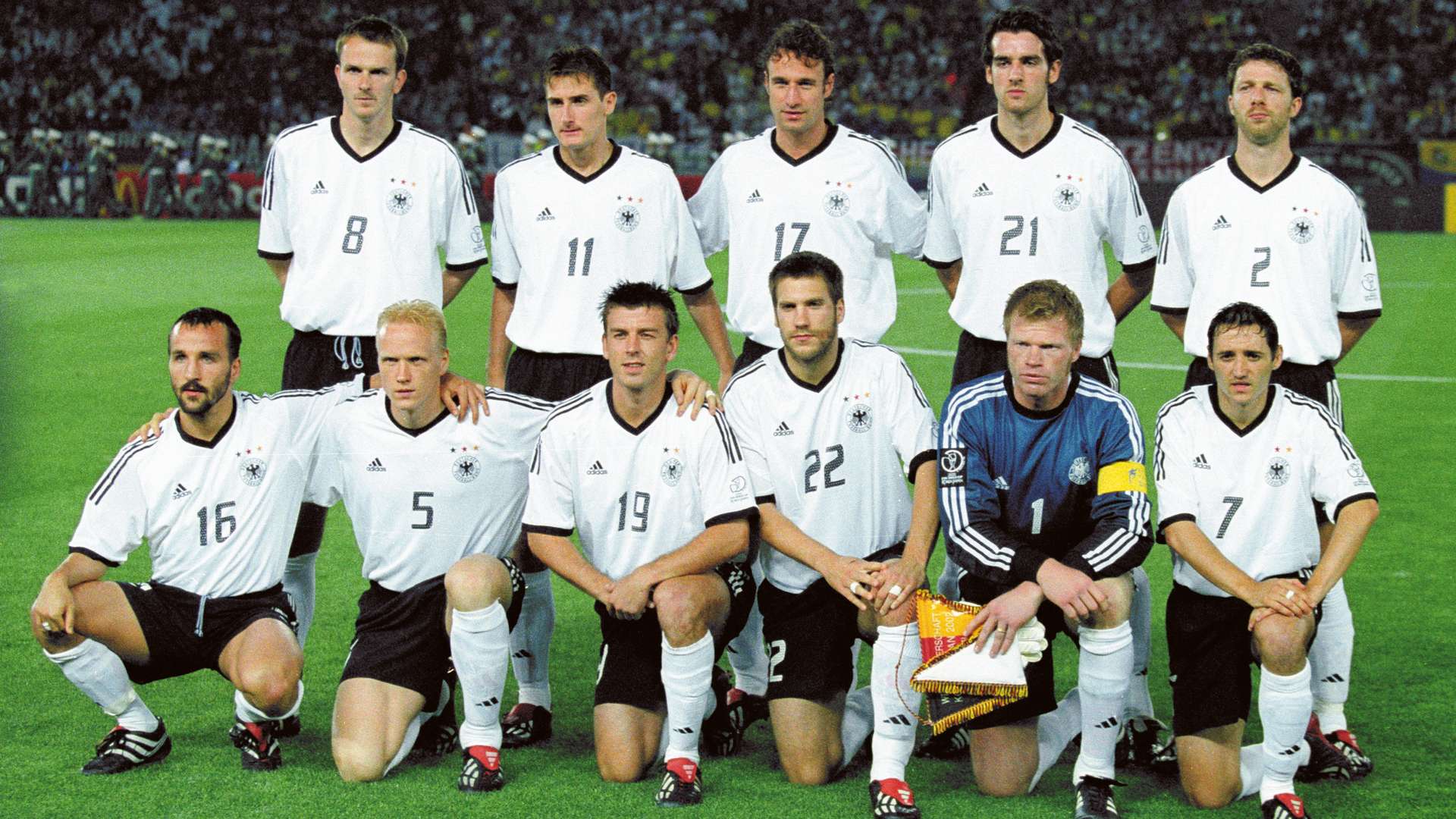
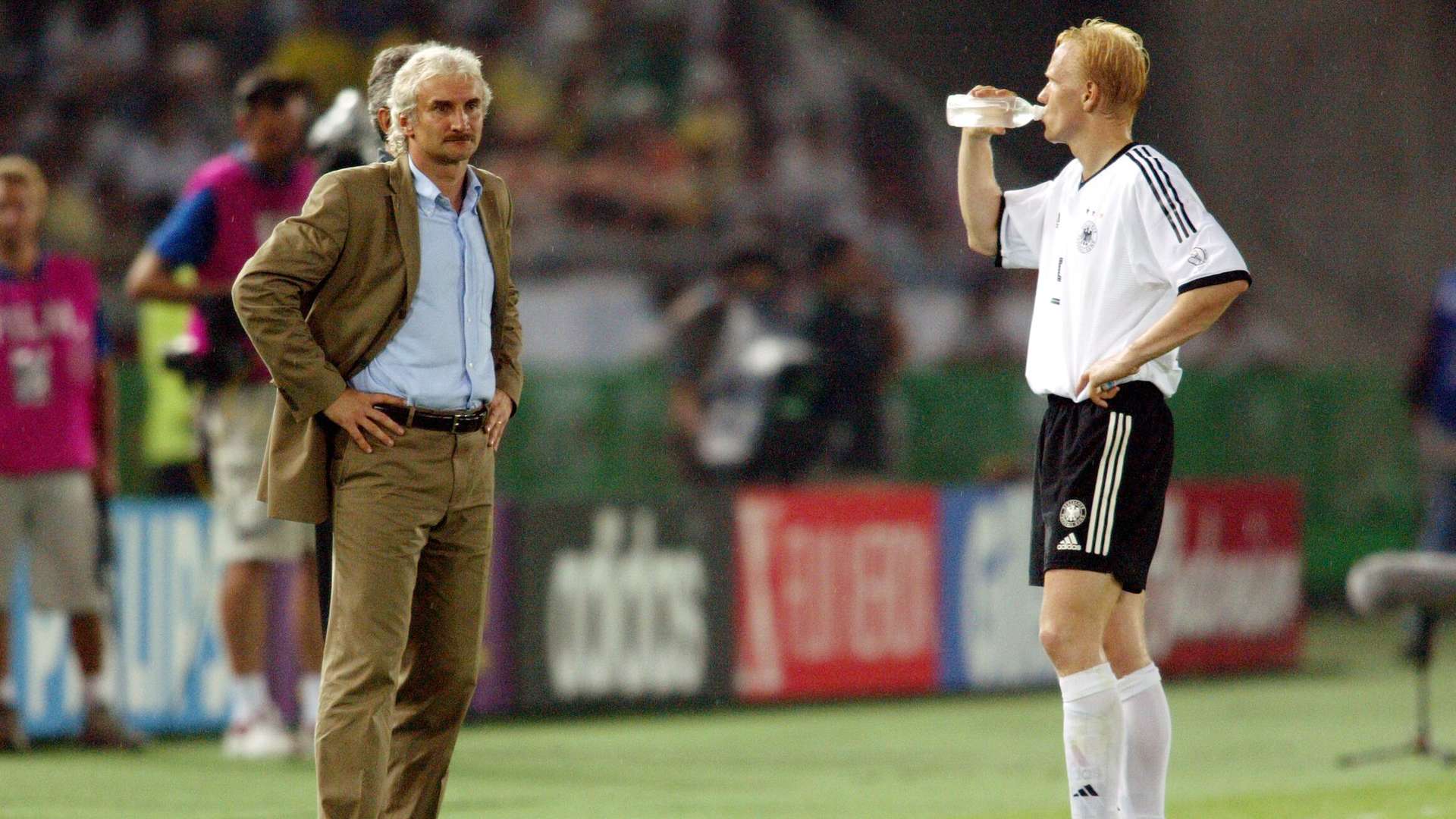
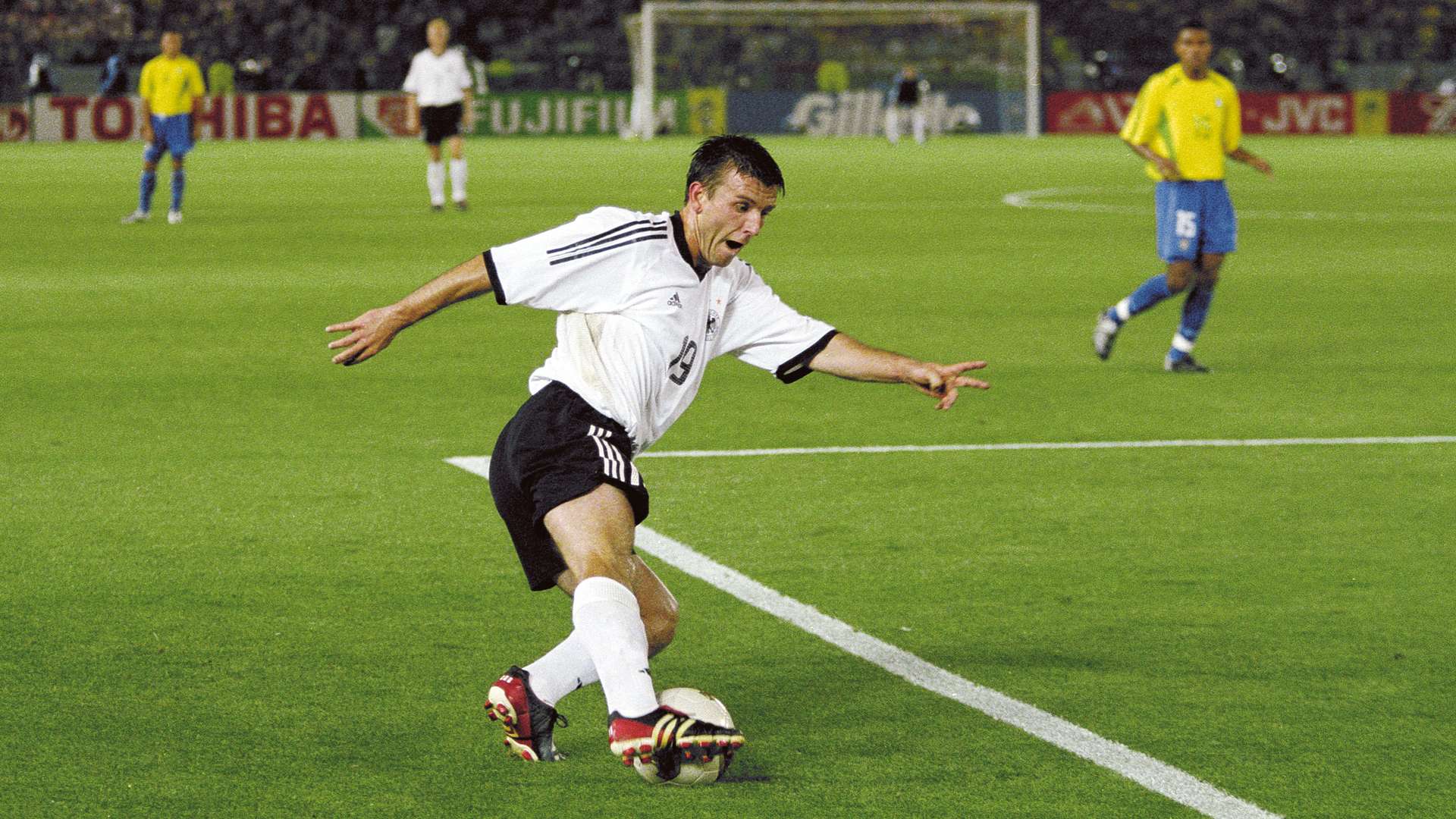
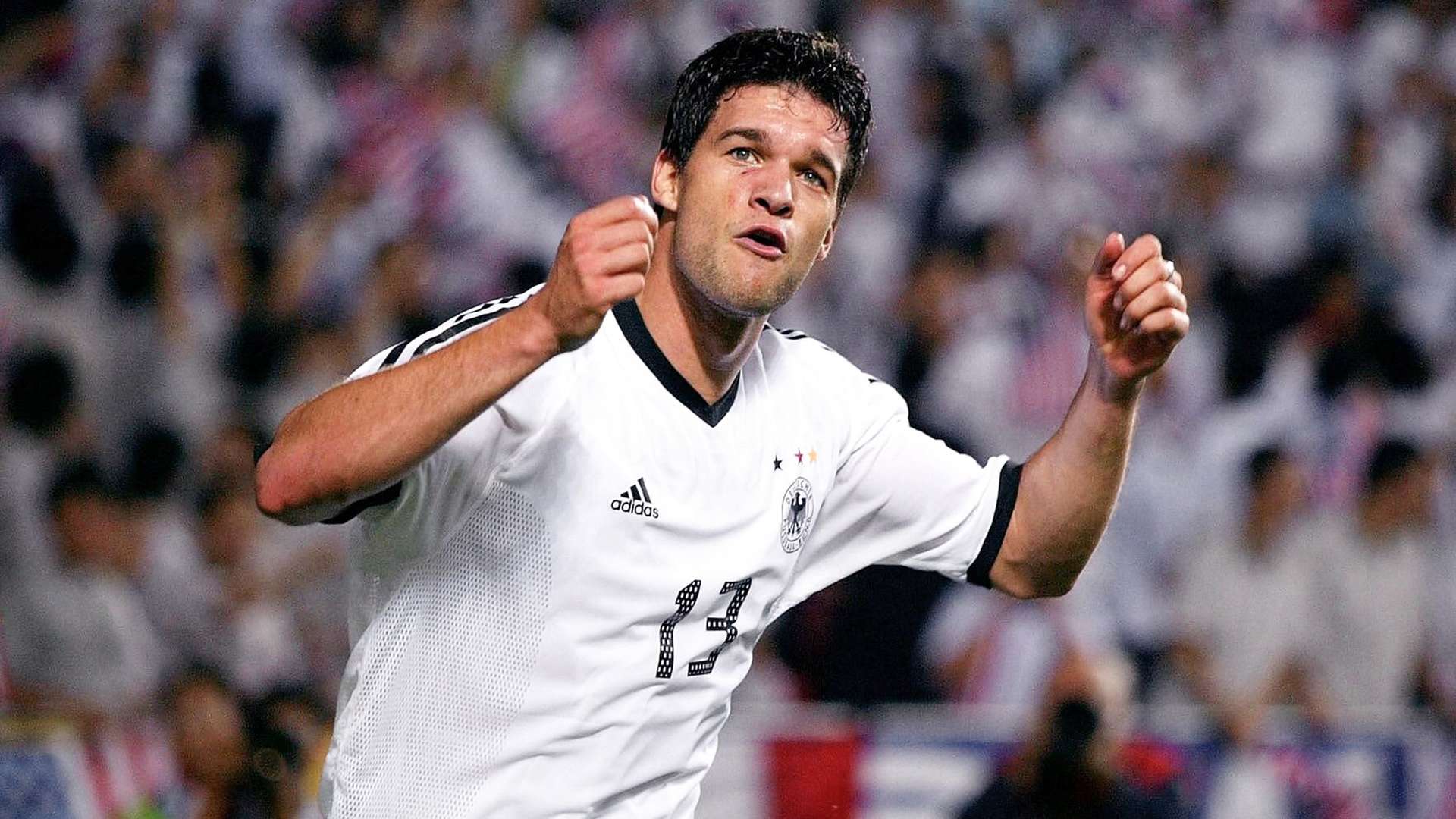
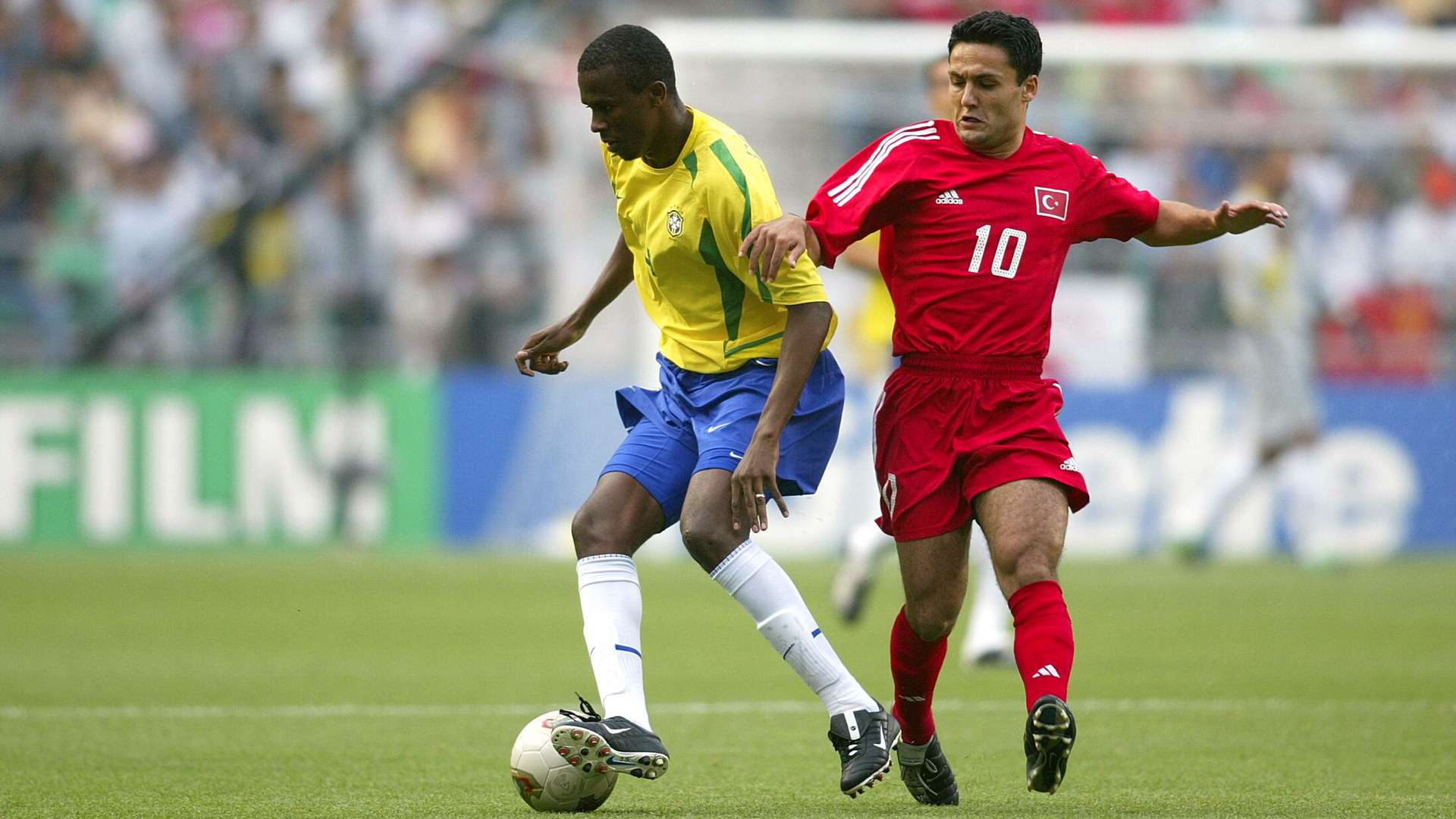
The pioneers with the eagle on their chest
The first two Germany internationals to wear the Bayer 04 shirt had already made their international appearances for Germany before coming to Leverkusen.
First up was Leo Wilden who joined the Werkself from FC Köln in 1966. The centre back and key defender, who won the German league title with the Goats in 1960 to 1964, made 15 appearances for Germany and was in the squad for the 1962 World Cup in Chile but he did not play in that tournament. After ending his career, Wilden was on the staff at Bayer 04 where he was the chairman for three years.
And the second Germany international to play for the Black and Reds was also at a World Cup – albeit with considerably more success than Leo Wilden. Dieter Herzog joined Bayer 04 in 1976 as a World Cup winner. The left-winger from Fortuna Düsseldorf made five international appearances including two at the 1970 World Cup in Germany: Herzog was in the starting line up the wins against Yugoslavia (2-0) and Sweden (4-2). Bayer 04 pulled off a master stroke with the signing of the winger noted for his dribbling and crosses. Herzog led the Werkself to promotion to the Bundesliga in 1979 and up to 1983 he made 83 top-flight appearances for Leverkusen (six goals).
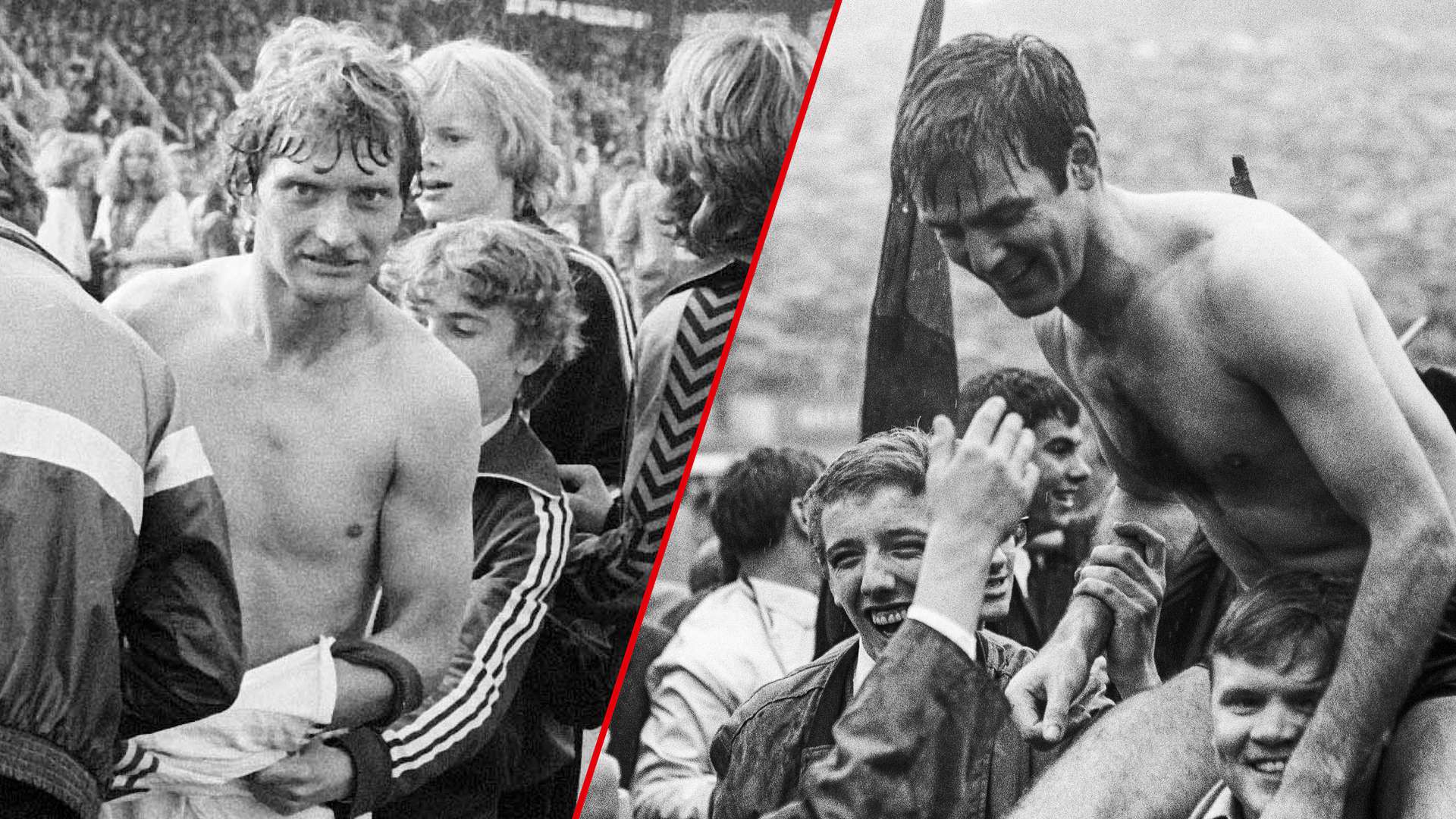
Only in demand for their national team
Among the 103 internationals, who played for their country during their time at the Werkself, are a number who rarely if ever made it in the Bundesliga.
For example, the Iranian Mehdi Pashazadeh, signed from Esteghlal FC in 1998, never played for Bayer 04 in the top flight although he did make 14 international appearances for his home country. The same applies to his fellow countryman Seyed Ali Mousavi, who also came to Germany from Esteghlal FC in 1999 to play for Fortuna Köln in the second division, scoring six goals in 24 games, before moving on to the Werkself in July 2000. However, the central striker did not manage to play in the Bundesliga but he did appear four times for the Bayer 04 Amateurs in the North Rhine Oberliga scoring three goals along the way. Mousavi made nine appearances for Iran. Also just on the verge of the Bundesliga was the Luxembourger Manuel Cardoni who played for Bayer 04 in the top flight for six minutes but he did win 68 caps (five goals) for Luxembourg by the end of his career.
The stats for Assimiou Touré reveal he made two appearances in the Bundesliga. The full-back, who came through the youth ranks at Bayer 04, made 15 international appearances for Togo including two at the 2006 World Cup in Germany. In January 2010, Touré was on the Togo team coach when it was attacked by terrorists with machine guns on the border to Angola but he managed to survive the cowardly attack at least physically unharmed.
The most striking difference is evident with Landon Donovan: The record goalscorer for the USA (57 goals in 157 internationals) took part in three World Cup finals but only made seven appearances for Bayer 04 in the Bundesliga (from 2000-2001 and 2004-2005) plus six for Bayern Munich.
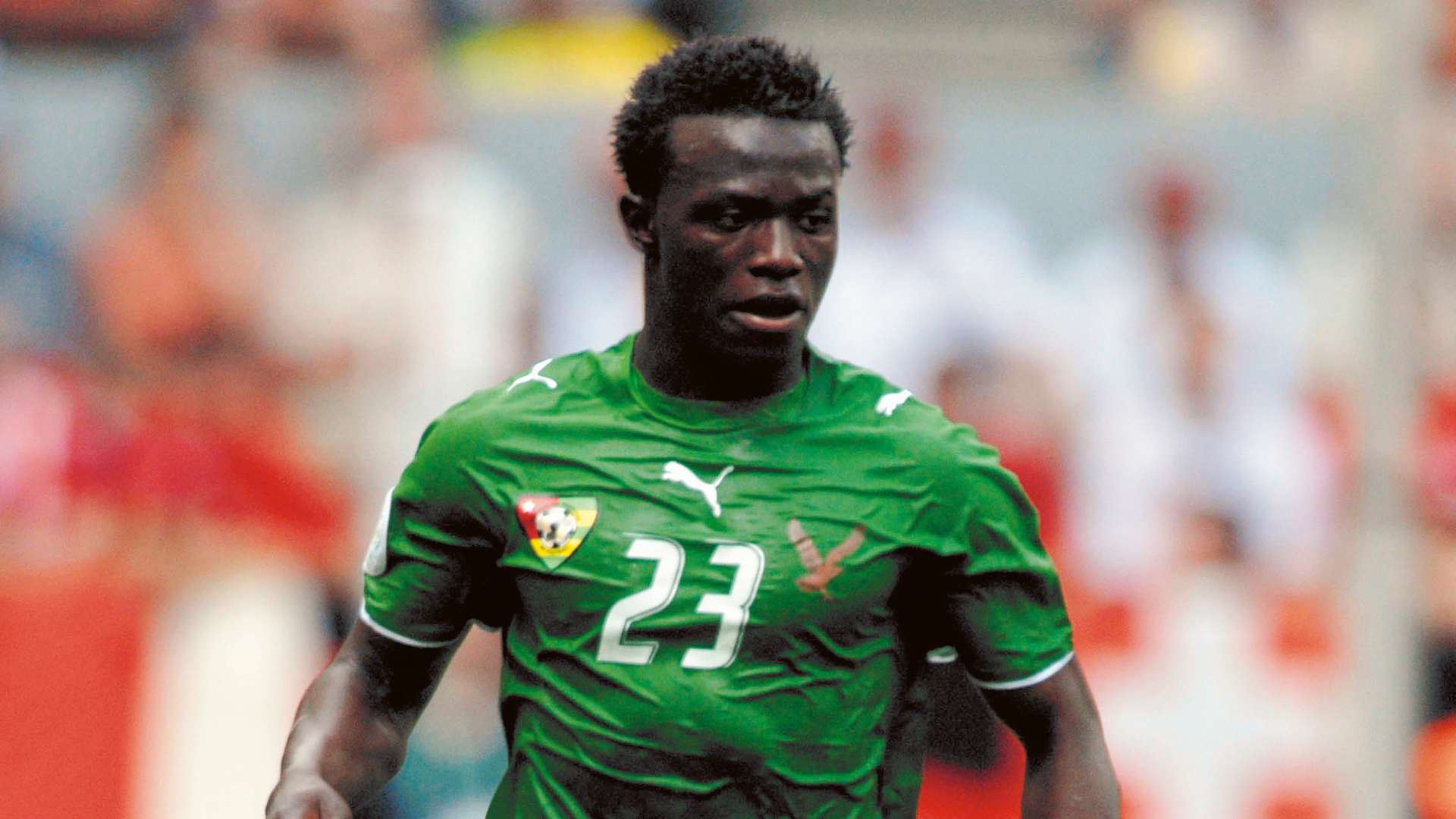
our current international plaYERS
The current Werkself squad includes a large number of international players who've made several appearances for their countries in the recent past as Bayer 04 players: Lukas Hradecky (Finland), Jonathan Tah, Kai Havertz, Nadiem Amiri, Kevin Volland, Karim Bellarabi, Kerem Demirbay, Lars und Sven Bender (all Germany), Aleksandar Dragovic, Julian Baumgartlinger, Ramazan Öczan (all Austria), Charles Aránguiz (Chile), Leon Bailey (Jamaica), Lucas Alario and Exequiel Palacios (both Argentina) plus Edmond Tapsoba (Burkina Faso).
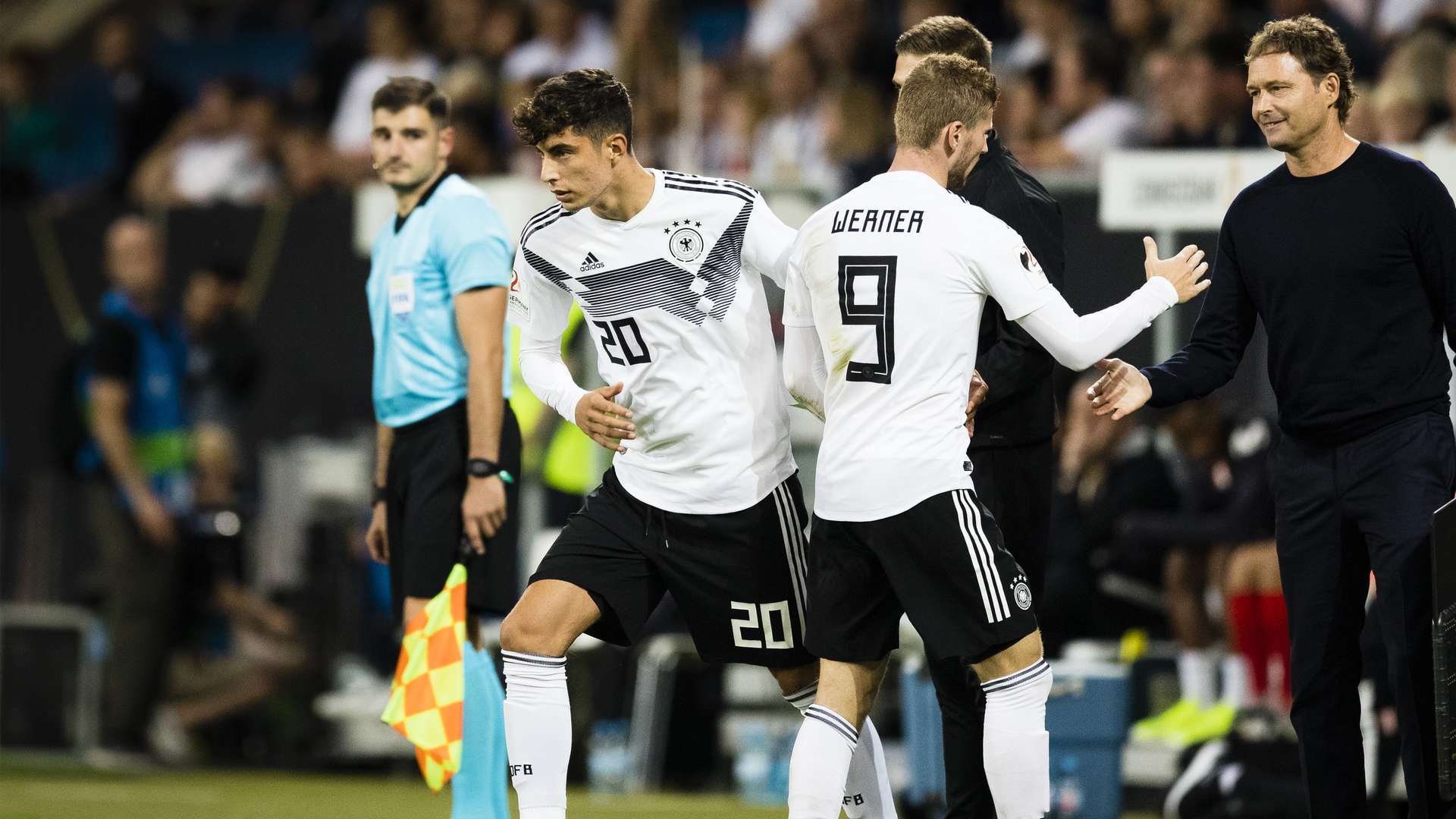

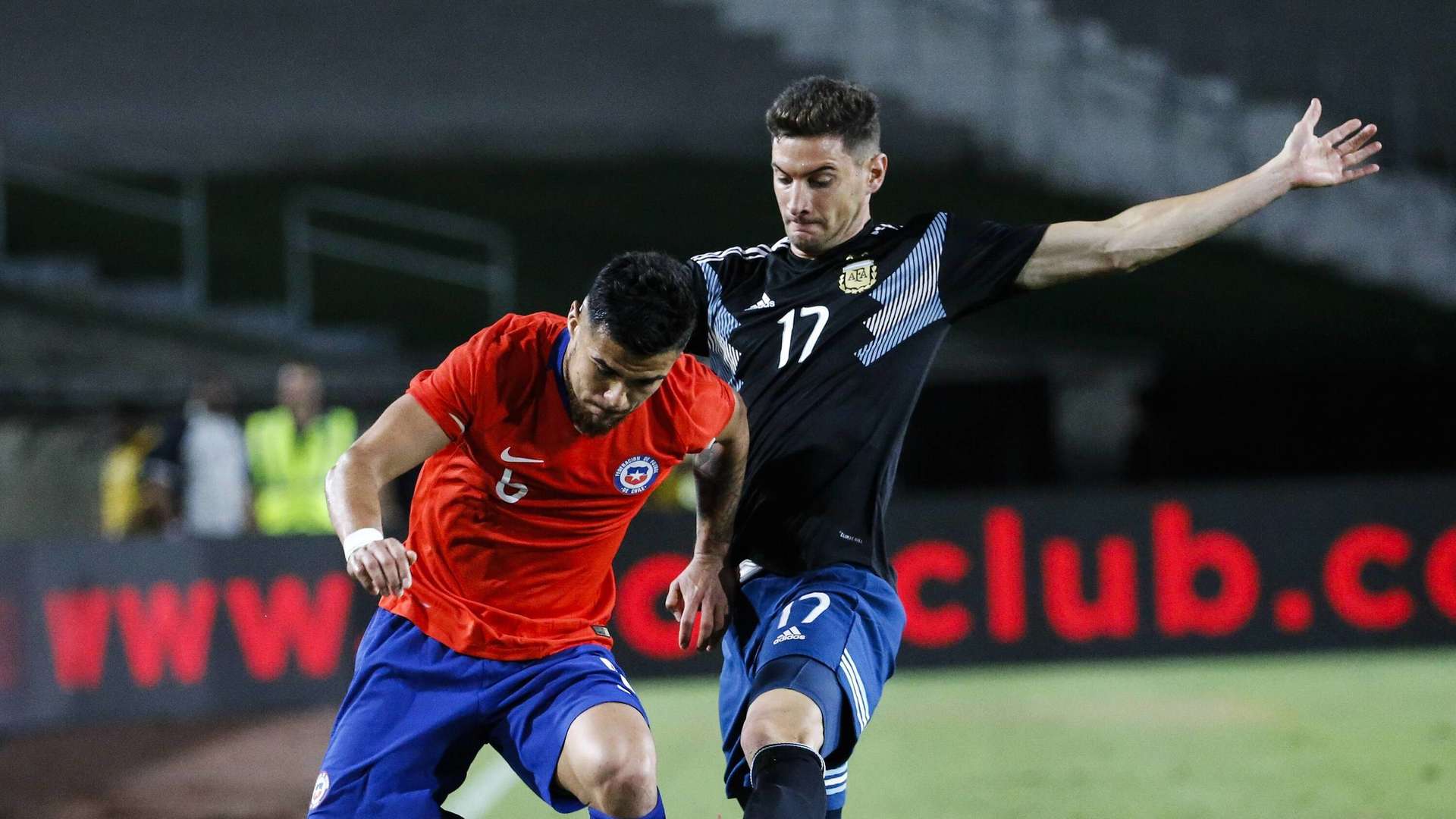
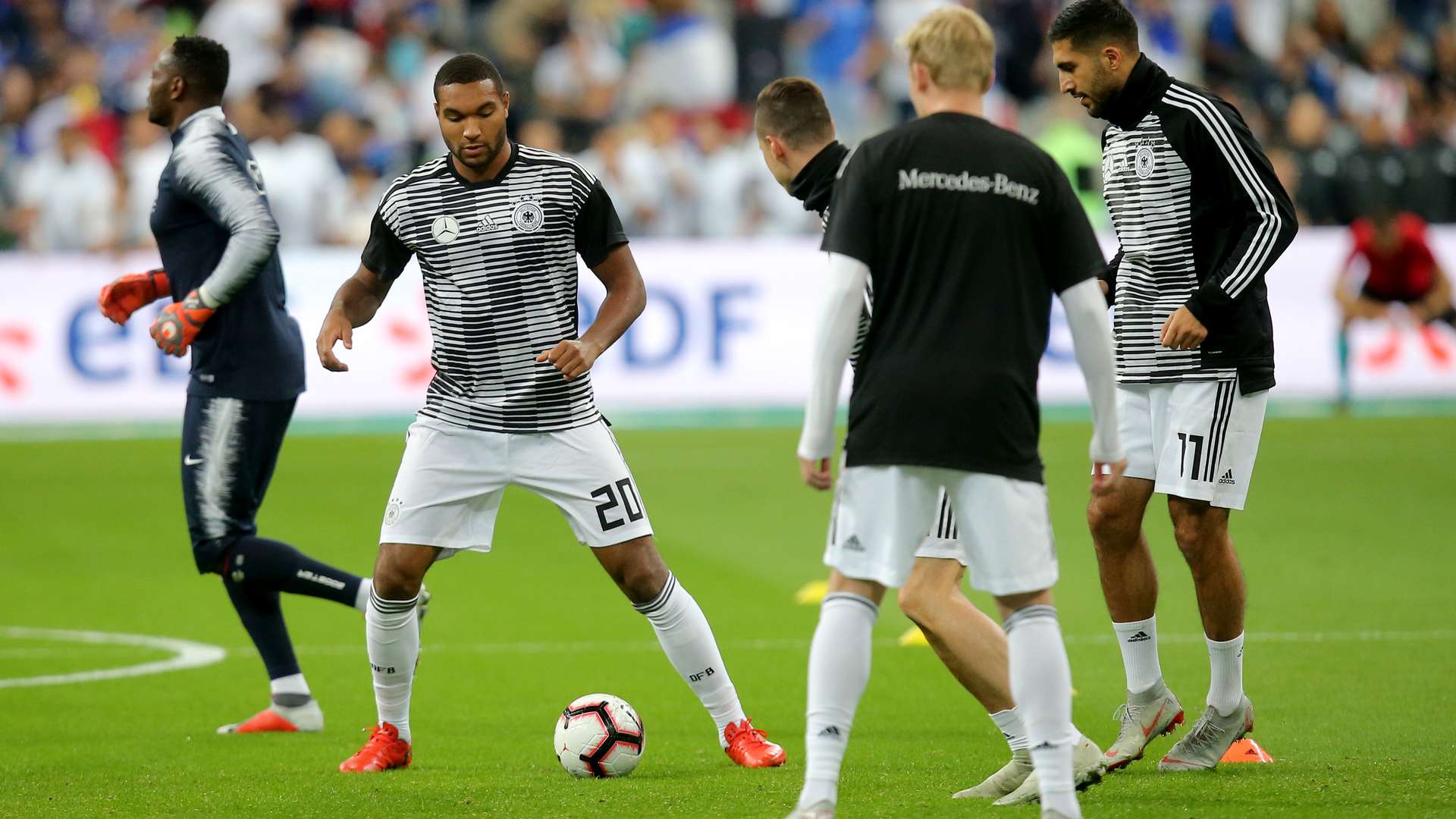
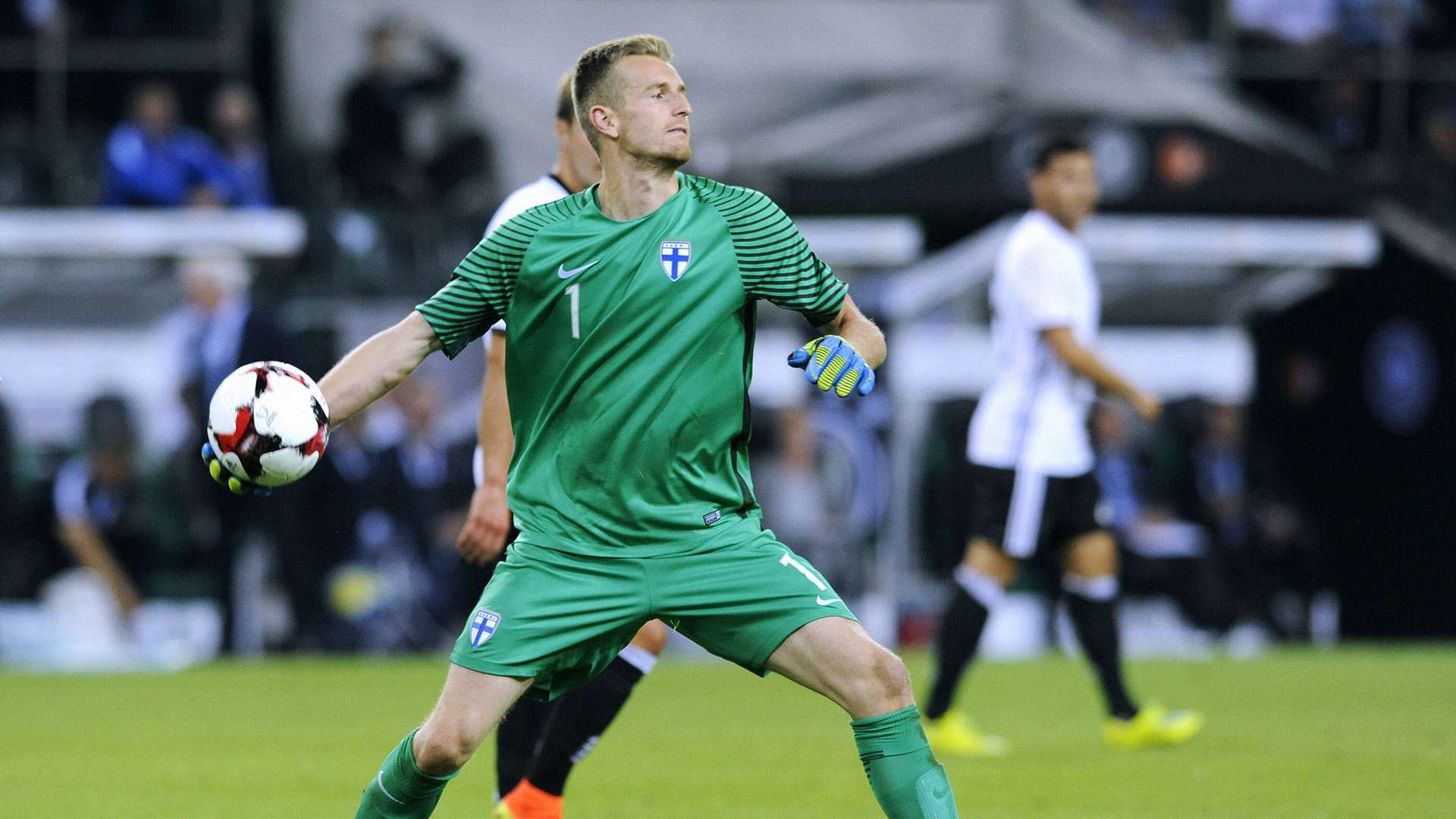
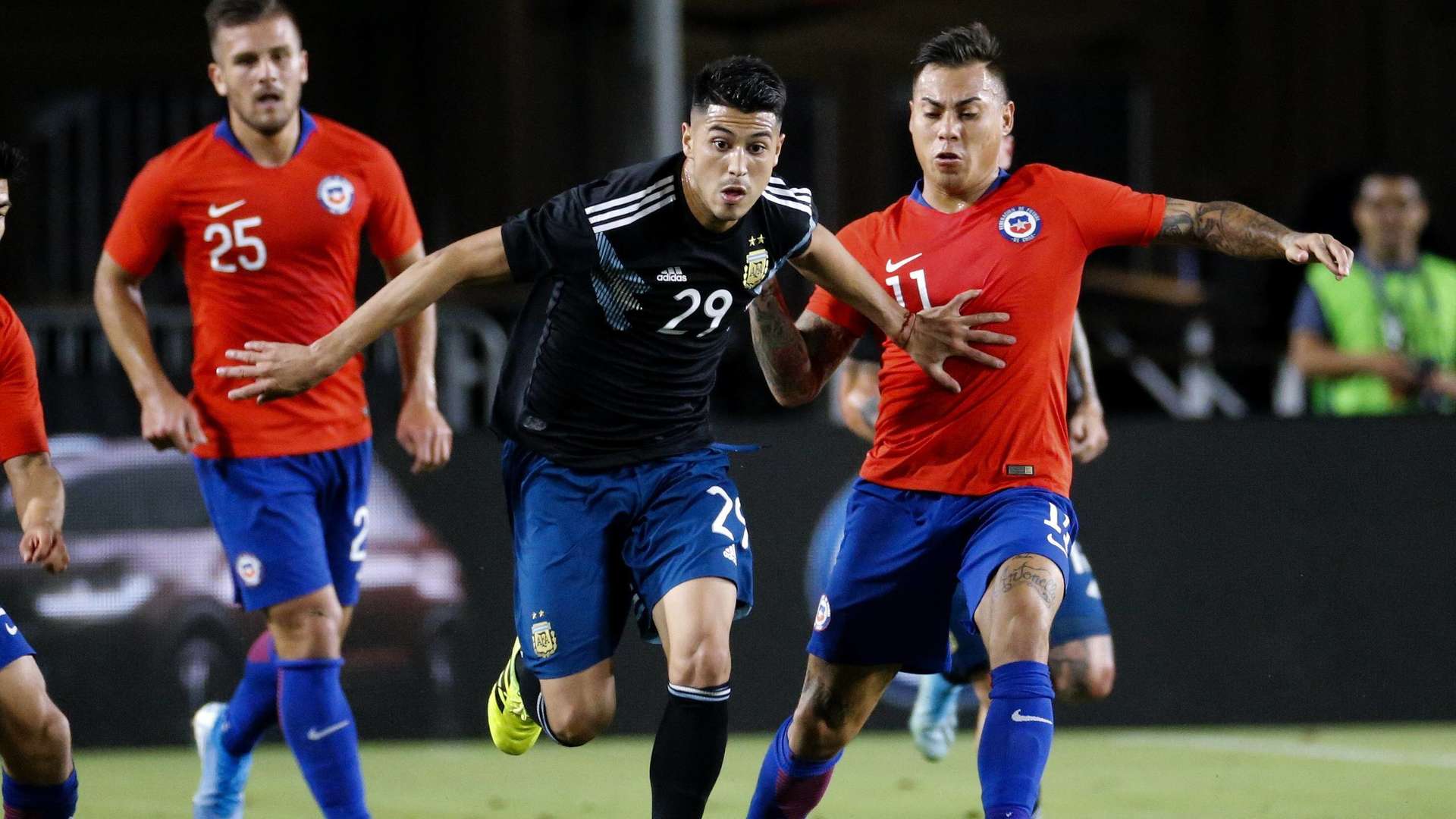
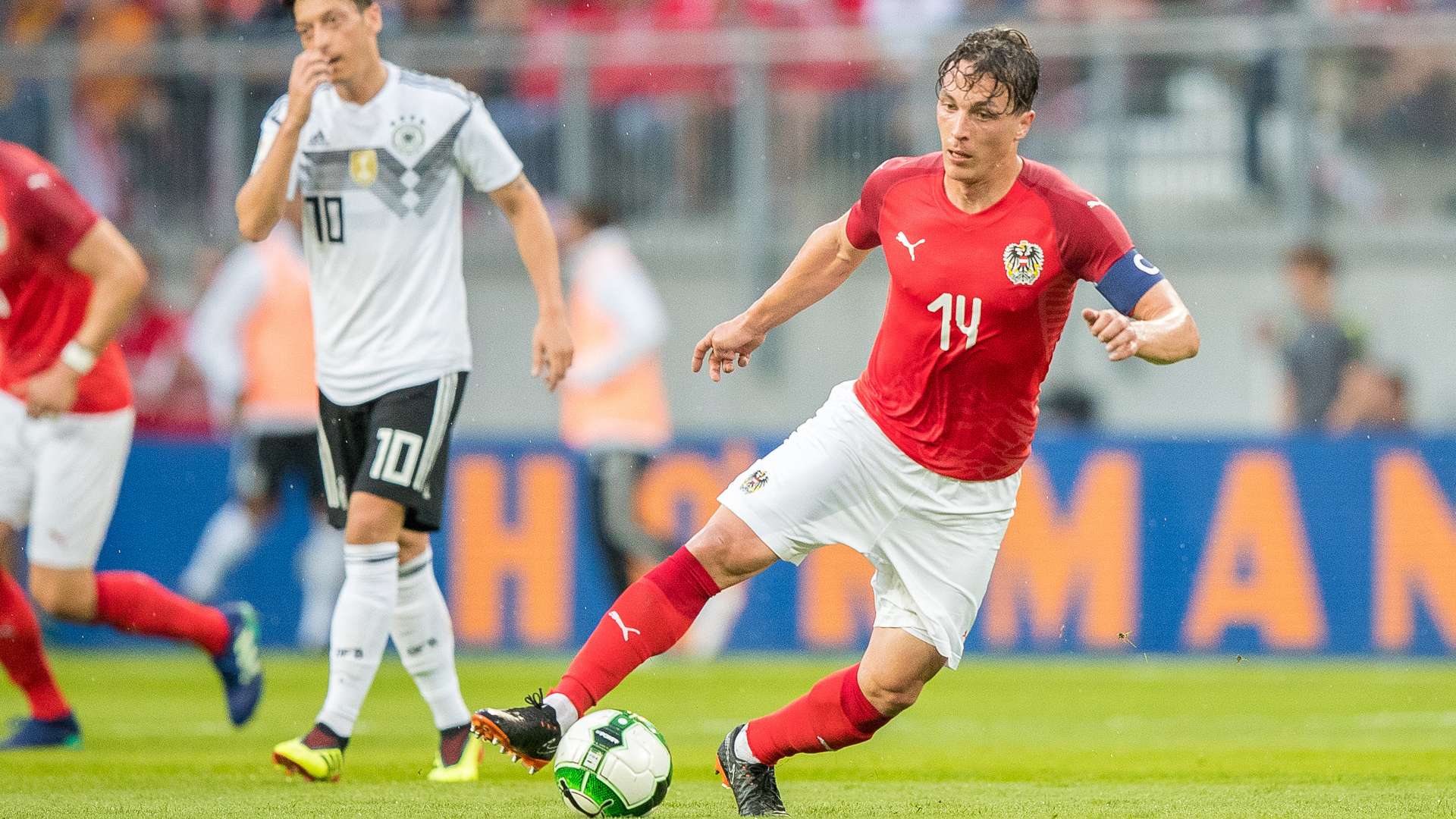
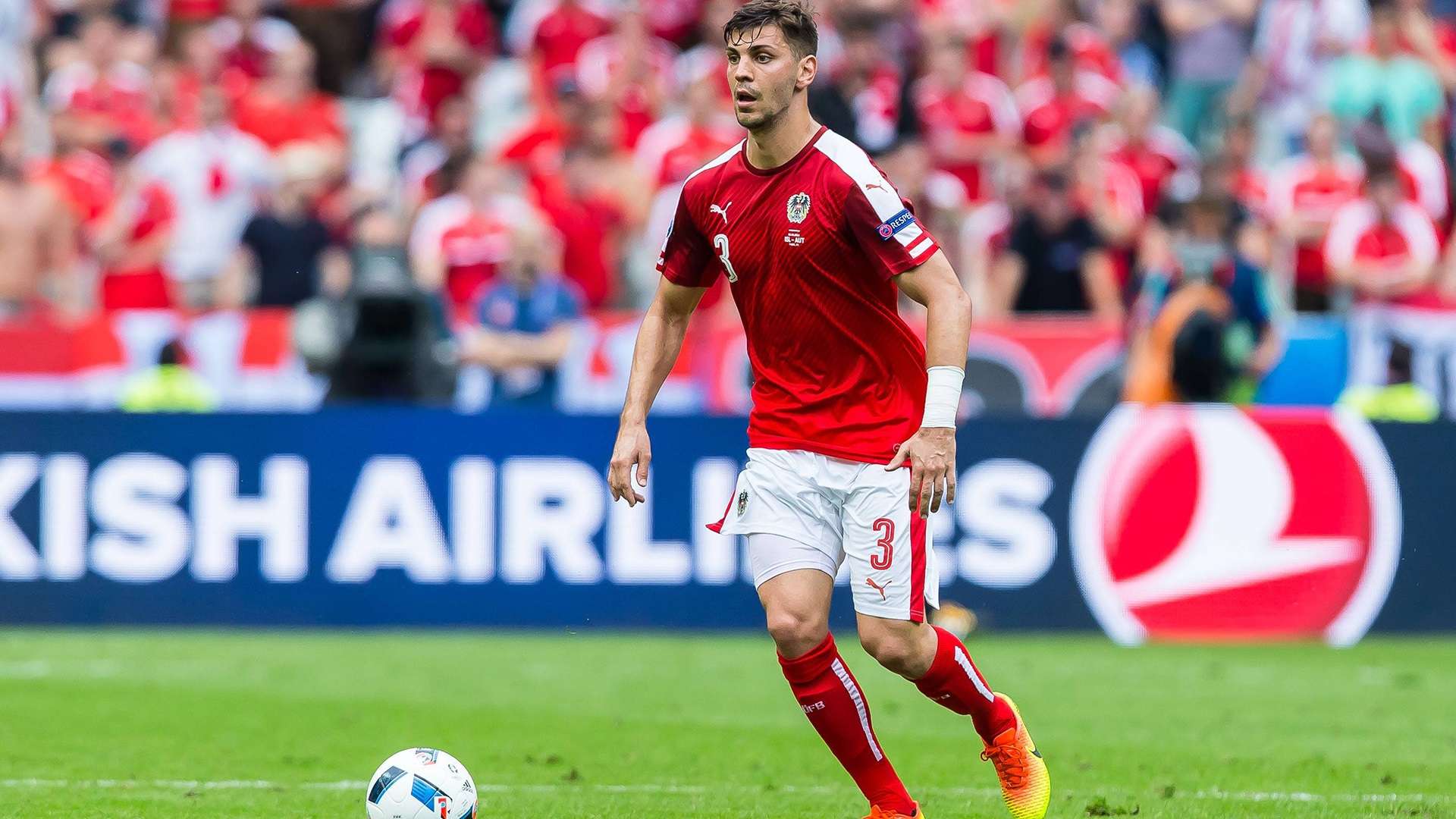
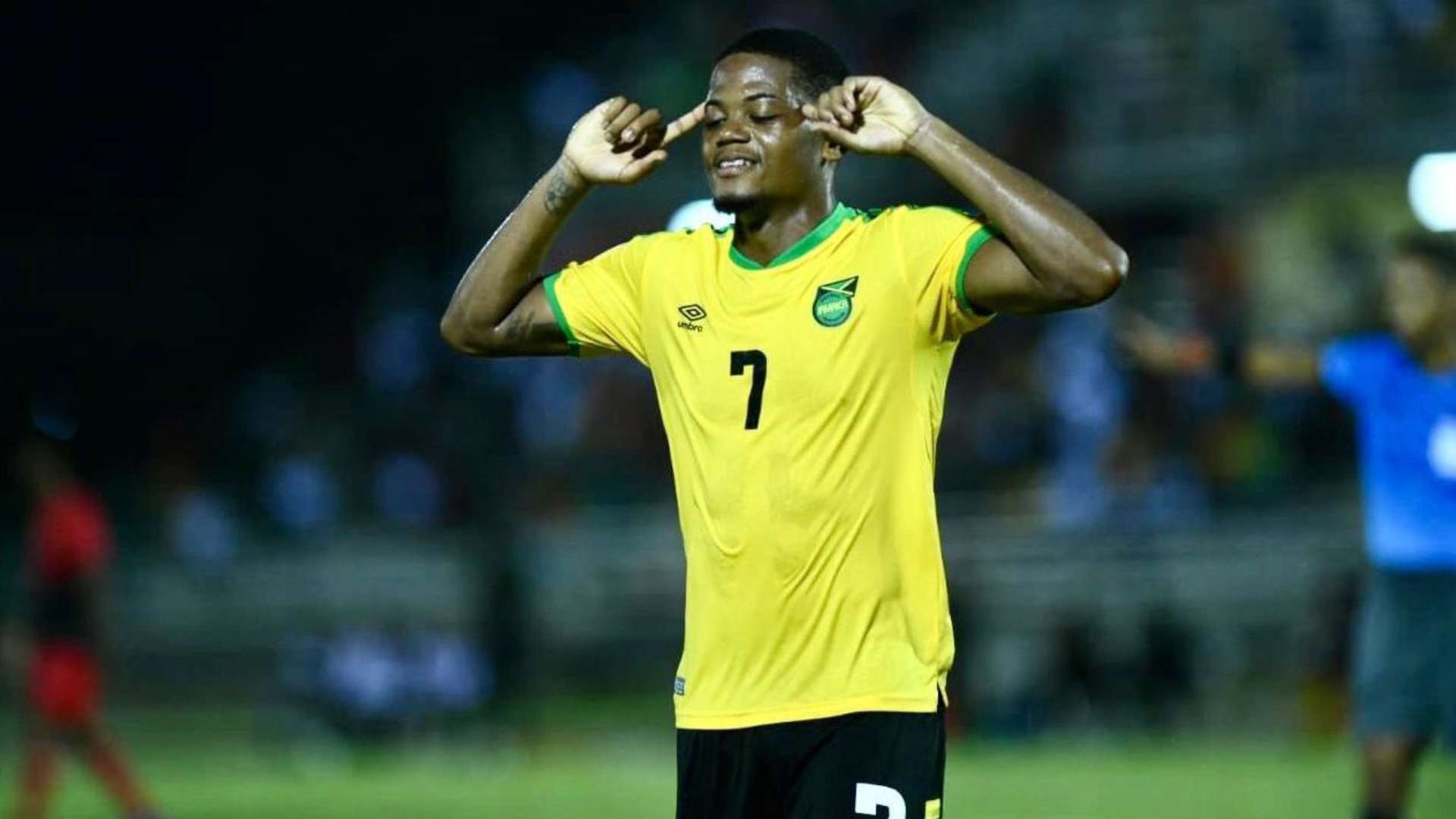
All 141 Werkself internationals
Germany(45): Herbert Waas, Christian Schreier, Wolfgang Rolff, Thomas Hörster, Alois Reinhardt, Knut Reinhardt, Christian Wörns, Heiko Scholz, Andreas Thom, Ulf Kirsten, Jens Nowotny, Stefan Beinlich, Carsten Ramelow, Paulo Rink, Oliver Neuville, Michael Ballack, Jörg Butt, Bernd Schneider, Thomas Brdaric, Daniel Bierofka, Paul Freier, Patrick Helmes, Hanno Balitsch, Simon Rolfes, Manuel Friedrich, Gonzalo Castro, Stefan Kießling, René Adler, André Schürrle, Lars Bender, Sven Bender, Stefan Reinartz, Sydney Sam, Phillip Wollscheid, Toni Kroos, Kerem Demirbay, Karim Bellarabi, Christoph Kramer, Jonathan Tah, Bernd Leno, Julian Brandt, Kevin Volland, Benjamin Henrichs, Kai Havertz, Nadiem Amiri
Austria(4): Emanuel Pogatetz, Julian Baumgartlinger, Aleksandar Dragovic, Ramazan Özcan
Switzerland (4): Tranquillo Barnetta, Eren Derdiyok, Pascal Zuberbühler, Admir Mehmedi
Turkey (3): Hakan Calhanoglu, Ömer Toprak, Yildiray Bastürk
Greece (5): Theofanis Gekas, Konstantinos Stafylidis, Angelos Charisteas, Kyriakos Papadopoulos, Panagiotis Retsos
Slovenia (1): Kevin Kampl
Norway (3): Arne-Larsen Ökland, Anders Giske, Bent Skammelsrud
Poland (9): Andrzej Buncol, Marek Lesniak, Adam Ledwon, Sebastian Boenisch, Adam Matysek, Miroslav Spizak, Radoslaw Kaluzny, Jacek Krzynowek, Arkadiusz Milik
Brazil (15): Tita, Jorginho, Paulo Sergio, Rodrigo Chagas, Zé Elias, Juan, Roque Junior, Athirson, Renato Augusto, Henrique, Zé Roberto, Emerson, Lucio, Franca, Cris
Rumania (1): Ioan Lupescu
Czech Republic(3): Pavel Hapal, Jan Simak, Michal Kadlec
South Korea (2): Bum-Kun Cha, Heung-Min Son
USA (4): Landon Donovan, Thomas Dooley, Frank Hejduk, Claudio Reyna
Chile (3): Arturo Vidal, Junior Fernandes, Charles Aránguiz (3)
Luxembourg (1): Manuel Cardoni
Denmark (2): Jan Heintze, Nicolai Jörgensen
Croatia (9): Marko Babic, Vedran Corluka, Tin Jedvaj, Niko Kovac, Robert Kovac, Zoran Mamic, Domagoj Vida, Jurica Vranjes, Boris Zivkovic
Ukraine (1): Andrej Voronin
Togo (1): Assimiou Touré
Hungary (1): Gábor Király
Australia (1): Robbie Kruse
Mexico (2): Andrés Guardado, Chicharito
Iran (2): Mehdi Pashazadeh, Seyed Ali Mousavi
Nigeria (1): Pascal Ojigwe
Bulgaria (1): Dimitar Berbatov
Argentina (3): Diego Placente, Lucas Alario, Exequiel Palacios
Sweden (3): Teddy Lucic, Fredrik Stenman, Isaac Kiese Thelin
Algeria (1): Ahmed Madouni
Bosnia-Herzegovina (2): Sergej Barbarez, Emir Spahic
Tunisia (1): Karim Haggui
Slovakia (1): Vratislav Gresko
Ivory Coast (1): Constant Djakpa
Finland (3): Sami Hyypiä, Joel Pohjanpalo, Lukas Hradecky
Jamaica (1): Leon Bailey
Burkina Faso (1): Edmond Tapsoba